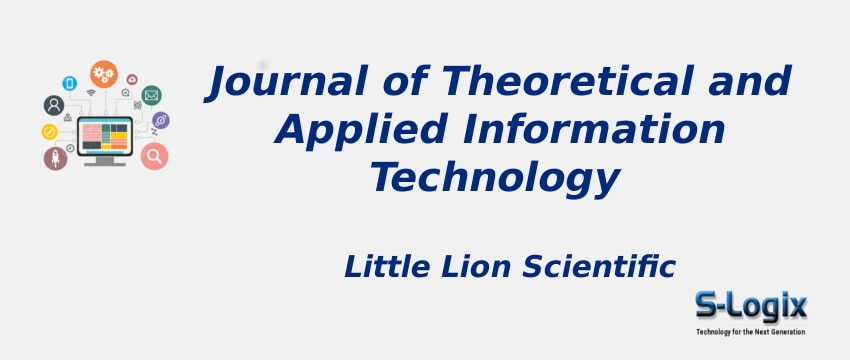Journal Home: Journal Homepage
Editor-in-Chief: Dr. SHAHBAZ GHAYYUR
Print ISSN: 18173195
Electronic ISSN: 19928645
Abstracting and Indexing: Scopus
Imapct Factor :
Subject Area and Category: Computer Science, Computer Science (miscellaneous), Mathematics, Theoretical Computer Science
Publication Frequency:
H Index: 42
Q1:
Q2:
Q3:
Q4: Computer Science (miscellaneous)
Cite Score: 1.4
SNIP: 0.258
Journal Rank(SJR): 0.168
Guidelines for Authors: Journal of Theoretical and Applied Information Technology Author Guidelines
Publisher: Little Lion Scientific
Country: Pakistan
